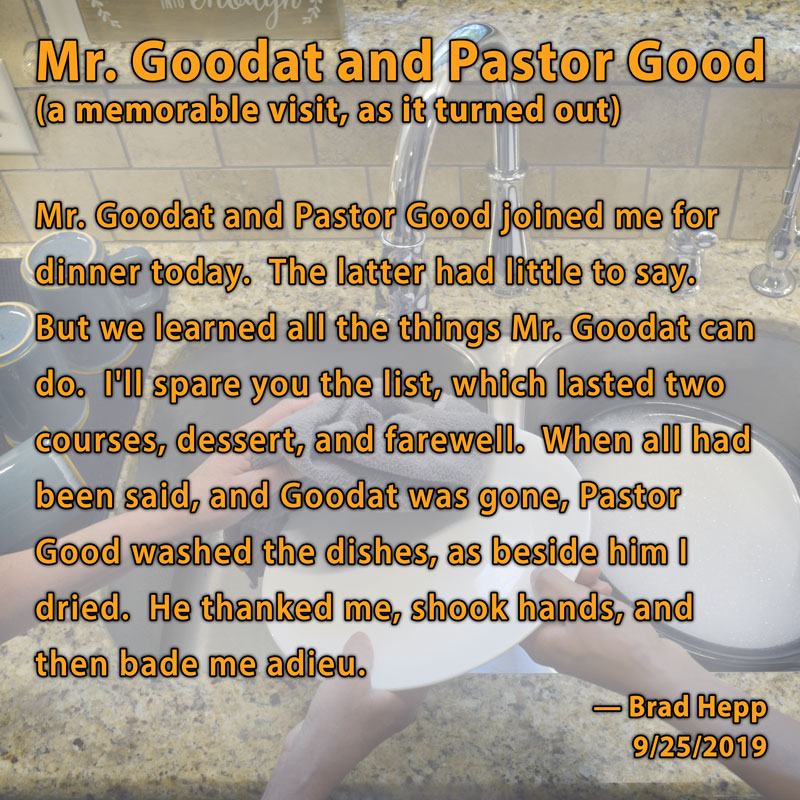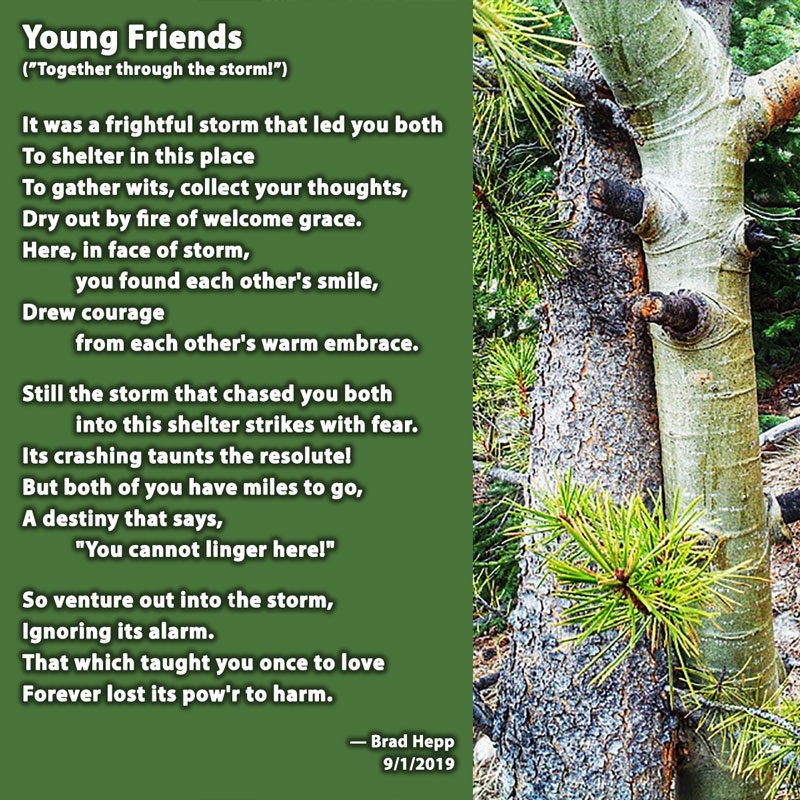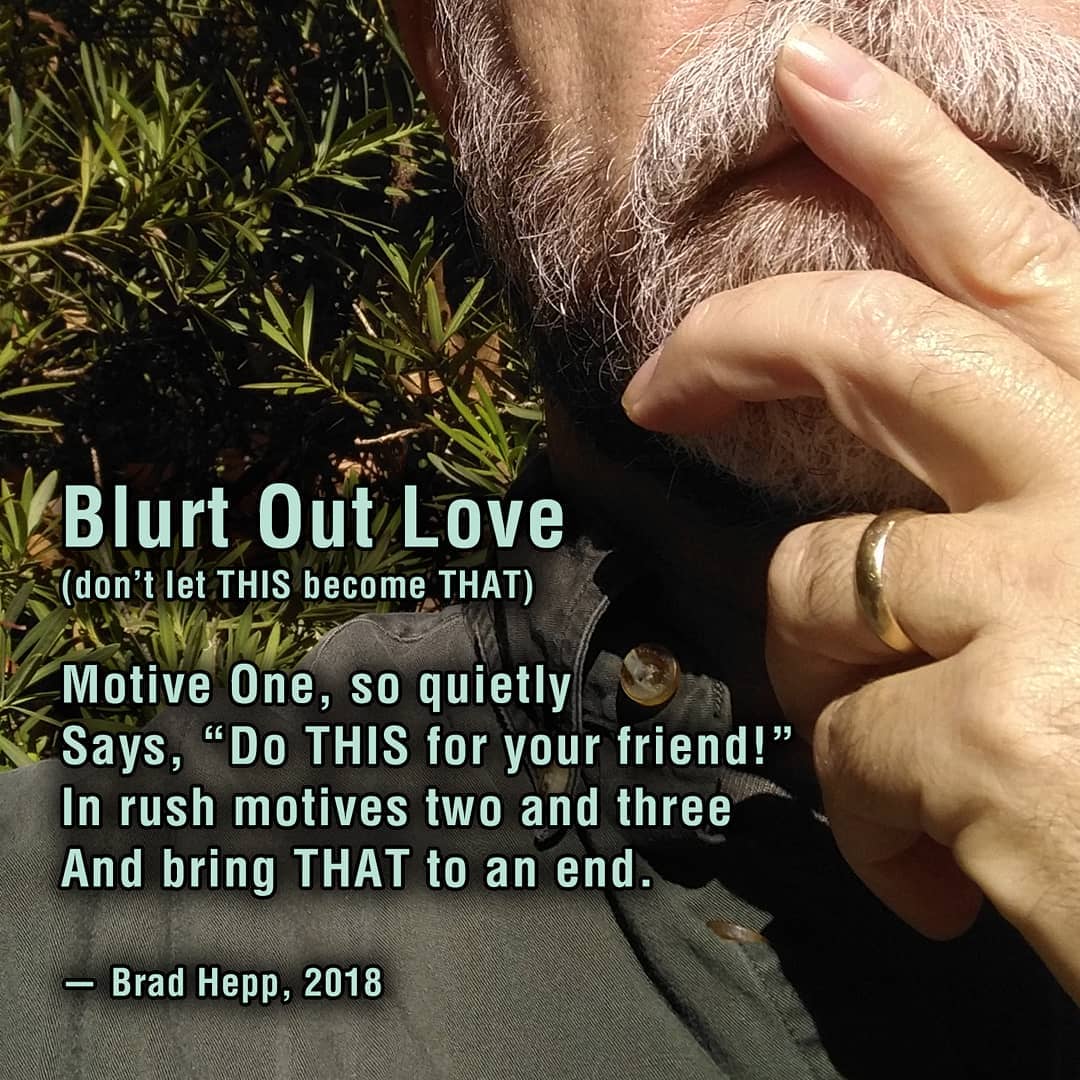(This poem USED to follow the rules for a Shakespearean sonnet. But forty years later, I have forgotten a few words and four lines! They were important to the flow and form, but probably added nothing to the sentiment. I was a freshman in college when I wrote this for an English course. It recalled the powerful crush I had on a girl who worked with me at a summer camp. She was older than me, beautiful and charming beyond description. When the summer passed, she returned to her home in the city, and shy young Brad — still working at the camp — could only watch for the ghost of her memory.)
I read the claim that “seasons rule man’s heart”
And thought, “Absurd! I know that cannot be!
Such stuff is nothing but poetic art
For mine was ne’er affected one degree!”
“My heart in dead of winter, as in spring
Has always changeless been despite the time!
Such stuff is used for rhyme
By poets who in fact don’t mean a thing.”
And still I’d think the poets’ claim untrue,
Had I not spent this Fall apart from you.
— Brad Hepp, Fall of 1978
AUGUST 2021 NOTE: I was reading back over my poems the other day and hit this one. I still haven’t found the original, full sonnet. BUT, this time, Cecile’s last name suddenly popped into my mind. A quick Google search, and it looked like I had located her. She now has a key position in state government. On LinkedIn, I messaged Cecile, assuring her that I’m NOT a stalker. She confirmed that she is the Cecile who tended the gardens at that summer camp. Fun.
Here’s the exchange I had with Cecile (slightly redacted):
I wrote:
Cecile, In my semi-retirement, I have been working on my poetry. The oldest poem I halfway recall is a sonnet I wrote for “Cecile” after the summer when she and I both worked at Sky Ranch out in East Texas. By the time I wrote the sonnet, I was in college and past my infatuation for her, but the memory of that infatuation was ample inspiration! I’m not a stalker. Rather, I’m happily married to my beautiful, godly wife Susan, and serving as an elder at our church here in Dallas. For some reason, the last name [REDACTED] popped into my mind when I was working on my poetry blog. A quick search, and there was this highly-accomplished civil servant. It wouldn’t surprise me if the inspiring young lady who tended the gardens at Sky Ranch is now tending something equally important.
Cecile responded:
“I did tend the garden at Sky Ranch. It was such a great time. I keep up with several others who worked the same summer.”




